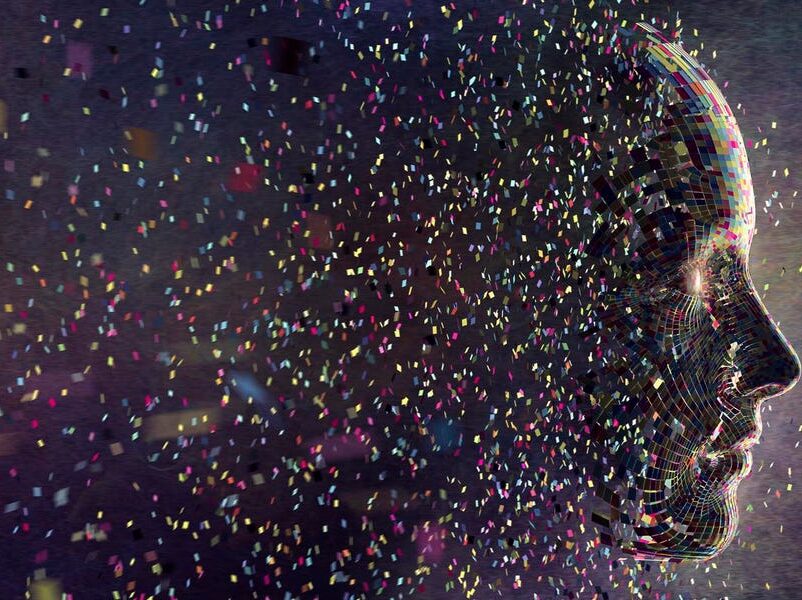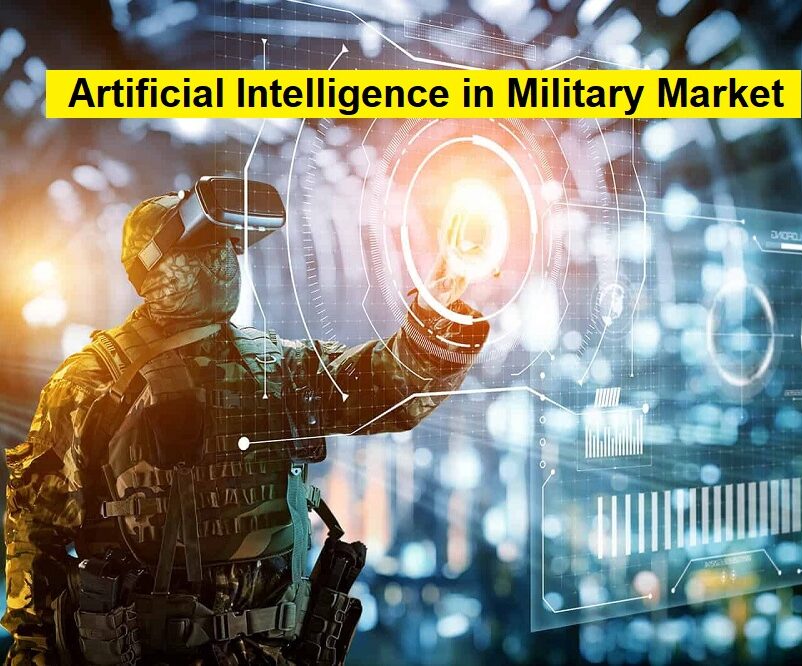
In a special podcast, global economist Nouriel Roubini outlines his rather alarming global prediction following the AI rapid developments
A Matter Of Life And Death is a special podcast that asks world experts non-traditional questions, which lead to remarkable responses in which surprising points of view are presented. In one notable episode, the podcast’s host Dr. Tal Patalon, Head of Israeli Maccabi KSM Research and innovation Center interviewed Nouriel Roubini, aka Dr. Doom, whose approach to economic analysis is holistic and rather unique; he steers away from mathematical models and formulas and draws his ideas from history, literature, and international politics, or what he terms “the entire enchilada.”
AI Will Soon Leave Us With No Livelihood But With Emotional Support
“Pessimism and optimism are two ends of the same disturbance,” says Patalon. “Artificial intelligence is not biased, which means that by definition it’s neither pessimistic or optimistic.”
Speaking to Professor Nouriel Roubini, she focused on AI and what it takes to have a clear view of reality in the present, and from that moment create a trajectory to a better future.
The conversation also focused on Roubini’s book, Megathreats. “I must say,” said Patalon, “I felt like Houdini put a book out there that everyone can read and then put it in a safe, closed the safe, threw it in the Hudson River and said, “Listen, guys, you have 90 seconds to pull yourself together and somehow get out of the disaster that is approaching rapidly.” In that, she summarized Roubini’s economic approach.
The Unexpected Mega Threats
“What I tried to address was that in addition to a variety of economic, monetary, and financial risks, inflation, recession, stagflation, debt crisis, financial crisis, and you name it,” Roubini said, “there are today in the world also a variety of other threats. That’s what I call them, mega threats. Trade wars, currency wars, deglobalization and fragmentation of the global economy. And now we also have a severe backlash against liberal democracy. All over the world,” he continues, “there are extremist partisan coalitions of the extreme right or the extreme left that are coming to power both in advanced economies and in emerging markets. And that’s a threat to our own freedoms, to the rule of law, to the respect of minorities and to our societies as well.”
“To understand the world it’s not enough to study only economics or science or politics or … [+]
He continues to arouse fears when he mentions additional threats that imperil our future, our jobs, our incomes, our savings, our wealth, our planet and even the future of our species as humanity. “Over the next few decades, there are geopolitical risks because there are a number of revisionist powers, China, Russia, Iran or Korea, Pakistan, that are not accepting the order that the US and the West created after World War II.”
The Pitfalls Of Technology
Roubini points out the risks that he believes come with advanced technology: “ artificial intelligence leads to unemployment. They lead to increasing income and wealth inequality, and they may even lead to the end of our species, sapiens, under some scenarios and circumstances. Some people make a fetish of technology the same way they made a fetish of other non-religious ideologies that then lead to nasty things, fascism, Nazis and other things. So, any ideology in which they believe that they’re infallible, is dangerous or leads to fanaticism. And that’s why while I see the benefits of potentially technology, I see the pitfalls.”
He refers to the effect of the growing numbers of use cases of Artificial Intelligence. “AI is going to lead gradually but steadily to the destruction of most jobs. I mean, not just routine jobs, not just cognitive jobs, but also creative jobs. There are AIs right now that create pieces of music, of art, and can write an intelligent article. This new ChatGPT is extremely powerful. I even found a critique of my own book,” he mentions to Patalon . “If you type it, “What’s wrong with Megathreats?” It’s going to give you a thousand words essay explaining intelligently, better than somebody with a PhD, what are the potential flaws of my book. Most people cannot do that. Now AI is doing it. So, people thought only routine jobs or menial jobs are going to disappear, most jobs are going to be gone and then we’re going to have massive, permanent technological unemployment.”
The honored economist continues with his dark predictions and explains that if you own the machine, you’ll do well. If you’re in the top 10% of the distribution of skills, income, and human capital, education, you’re going to have a massive increase in income, because technology is capital intensive, skill biased, and labor saving. ‘For now’,” he emphasizes, “the machine is going to make you more productive. But if you’re in the bottom 90%, blue collar, white collar, low value added, middle value added, middle class, your jobs and your income are going to be threatened gradually and steadily by technology and you’re going to become obsolete. That’s the scary side.”
Moving from issues of livelihood to geopolitical concerns, Roubini reminds us that evolving technologies are traditionally developed by governments who want to “build bigger weapons to fight bigger wars. That,” he insists, “has been the driver of all technologies, we had the first Industrial Revolution and all the technology and globalization, and then we fought World War I and then in the ’30s we built the weapons that led us to World War II. And then we developed nuclear weapons and we used them at the end of World War II against Nagasaki and Hiroshima.”
Connect The Dots
“To understand the world it’s not enough to study only economics or science or politics or geopolitics, you have to connect all the dots.” In today’s reality of commercial applications, he believes the stakes are even higher. “The race between say, the US and China around who’s going to dominate AI is not only on who’s going to dominate the industries of the future, but so much more, its about the military and the geopolitical domination. Military in the future is going to be more autonomous drones, more autonomous weapons, more robo soldiers, more cyber warfare. So, whoever dominates AI also dominates the geopolitical and world security. There are all these side effects of technology to keep in mind. And all these threats are interconnected, it’s like a bit of a matrix of 10 threats. Each one affects the other and vice versa.”
“Pessimism and optimism are two ends of the same disturbance.” Head of Israeli Maccabi KSM Research … [+]
The podcast interview brought up an interesting aspect that has not been addressed until now, when the podcast’s host, Dr. Tal Patalon mentioned the missing element in a world dominated by AI, i.e., feelings. “You said that, “Maybe AI, robots, whatever we’ll use, will learn our behavior and will give us a substitute for human relationships.” Roubini explained that that certainly could be a possibility. “Well, it’s rare if not impossible to have unconditional love. Some people say pets, a dog or a cat can do so, but even your children don’t give you unconditional love. And any human relationships, whether you like it or not, has some elements of conditionality. People said that machines cannot be a substitute for human feelings, human touch, human love and all the rest, and I understand that point of view. But even those things can change over time. In Japan,” he mentions, “where there are not enough young people to take care of the elderly and they restrict migration, there are robots now that are caregivers and they have increasing emotional intelligence. If you’re unhappy, they can see and perceive that you are and they make a sympathetic face and they ask you what’s wrong, and so on. If you’re happy they smile and they show empathy that way.”
He describes non-verbal cues that most humans are not able to detect. “We think that robots cannot do it, but maybe they can be as emotionally intelligent or more emotionally intelligent than humans. There are, of course, pet robots that give you that type of affection. Maybe some of them might eventually be able to talk to you as well, in ways that pets don’t, and so on.”
As an active physician specializing in family and emergency medicine, Patalon raises the growing concerns pertaining to the correlation between technology and mental health and the rise of depression following the growing use of social media. “Will enterprises like Google Health, Amazon Health, at the end of the day have their private clinics in the metaverse, for example?”’ she asks. “ They can provide everything online. And the fundamental intention is making money, right? It’s business.”
AI Care
Roubini confirms that financial motivations are already dictating the healthcare system in the US. ”In some sense, it doesn’t matter whether Google provides it or a big HMO for-profit. I mean, you saw the case of the opioid crisis where everybody, the pharma producers, the doctors, the pharmacies, everybody’s involved into getting people addicted, and it’s a massacre. There are 100,000 people every year in the US who die of overdoses. About 80,000 of that 100,000 is from opioids. So unfortunately, it’s not about healthcare, in some cases, the opposite, making you more sick and making you die for a profit. So, in principle, AI can provide better healthcare, maybe the fact that some of these tech companies are getting into that business is not such a bad idea. It’s a question of how you design it and what’s the purpose of it.”
The fascinating conversation between Dr. Patalon, the philosophy enthusiast physician and the rather nontraditional economist digressed in unexpected directions but concluded with an interesting note.
“Are you, at the end of the day, optimistic?” Patalon asked.
“I’m of the view that you have to look at the world realistically,” Roubini said. “ Life for thousands of years was very gruesome. Until the Industrial Revolution, life expectancy was about 30 years or so, and people died of wars, of famines, of genocides, of plagues, of disasters. Life was brutal and In many parts of the world it still is. Even in advanced economies we have lots of social ills. All this affluence has not made us necessarily happy. But economics studies suggest that when your income is very low, there is a correlation between increase in your income and happiness. You have to fight every day to find food or water or shelter, or not being killed by animals or humans, it’s a brutish life and therefore, having those basic things of life makes you happier and less stressed. But above a certain level of income and wealth, the correlation between happiness and income is zero, sometimes negative.
I mean, I know plenty of billionaires that are unhappy, cranky, depressed, depressing, in spite of having the mansions, the boats, the jets, everything. So, the best things in life probably that give you real happiness are not necessarily things you buy, material things, but love, care, compassion.” And will technology play a role in providing those elements? He doesn’t rule it out. “Eventually the machines are going to become super intelligent. Maybe some subset of us are going to be able to merge with the machine from organic life, bionic, upload our memories, consciousness, maybe live forever and maybe become like the machines. Maybe not just more intelligent, but maybe even more wise. Technology is going to lead to something else, for sure. It’s only a question of whether it’s going to happen 50 years from now or 20 years from now, or 100 years from now. But there’ll be a change. It’s guaranteed there’s going to be a change.”


